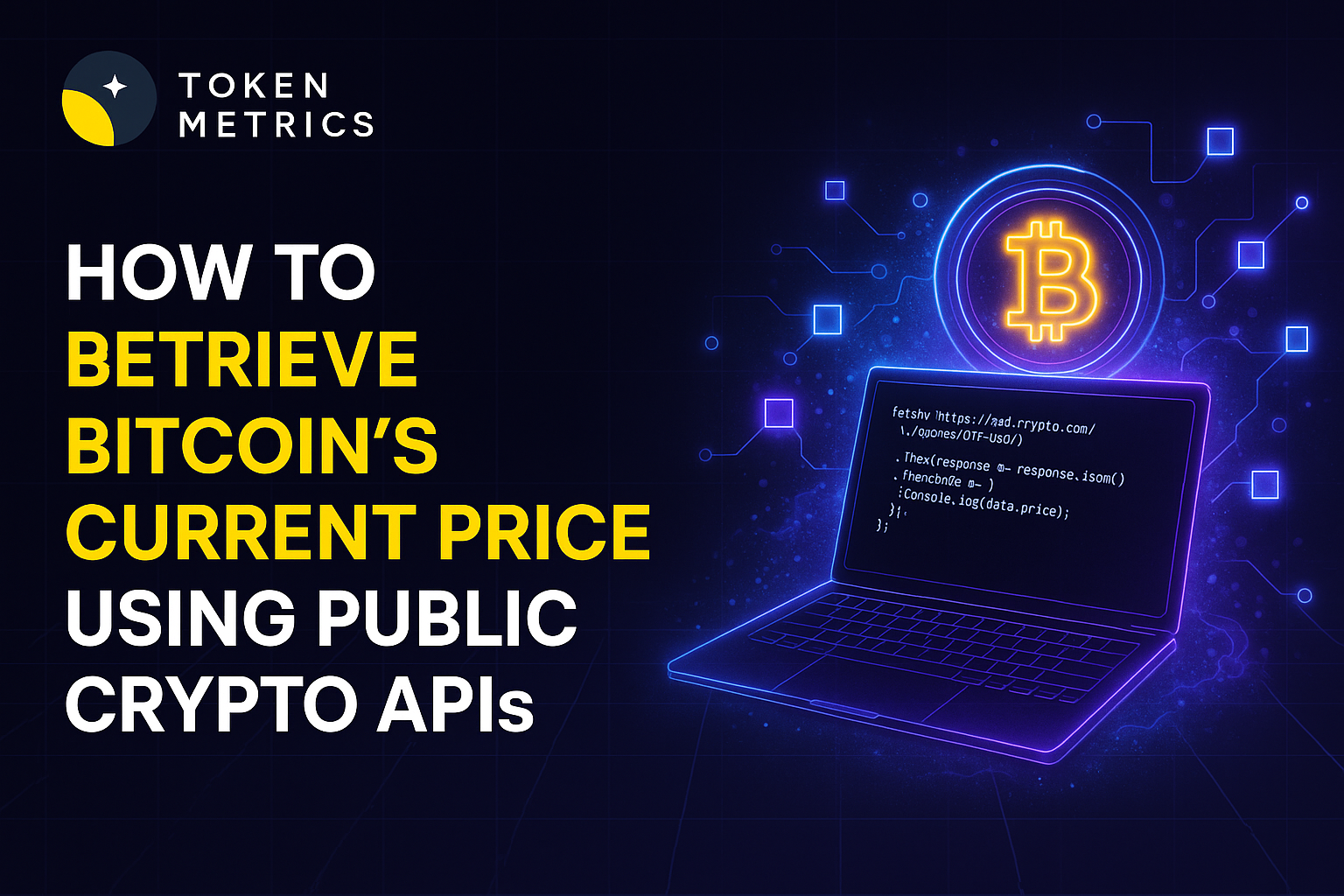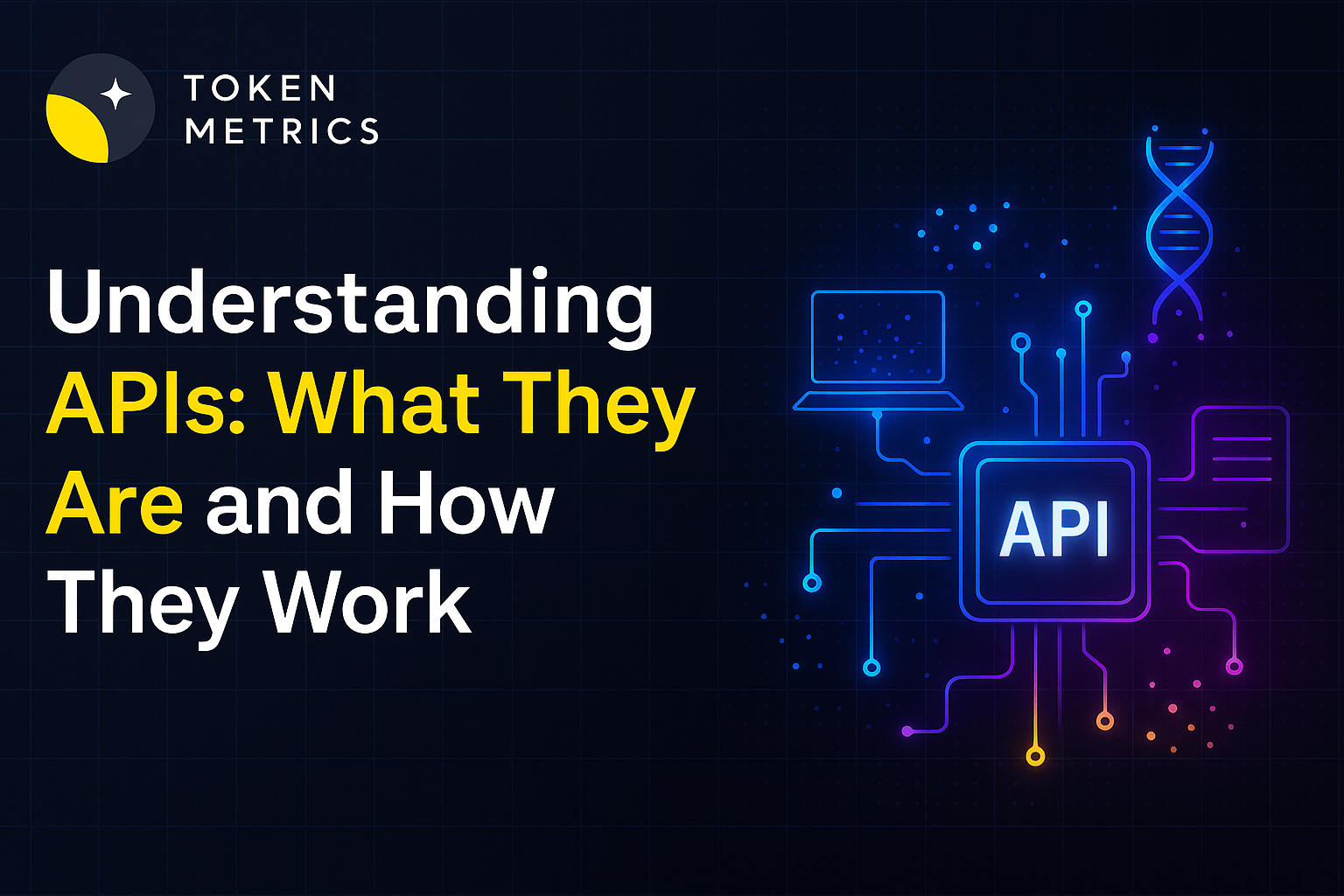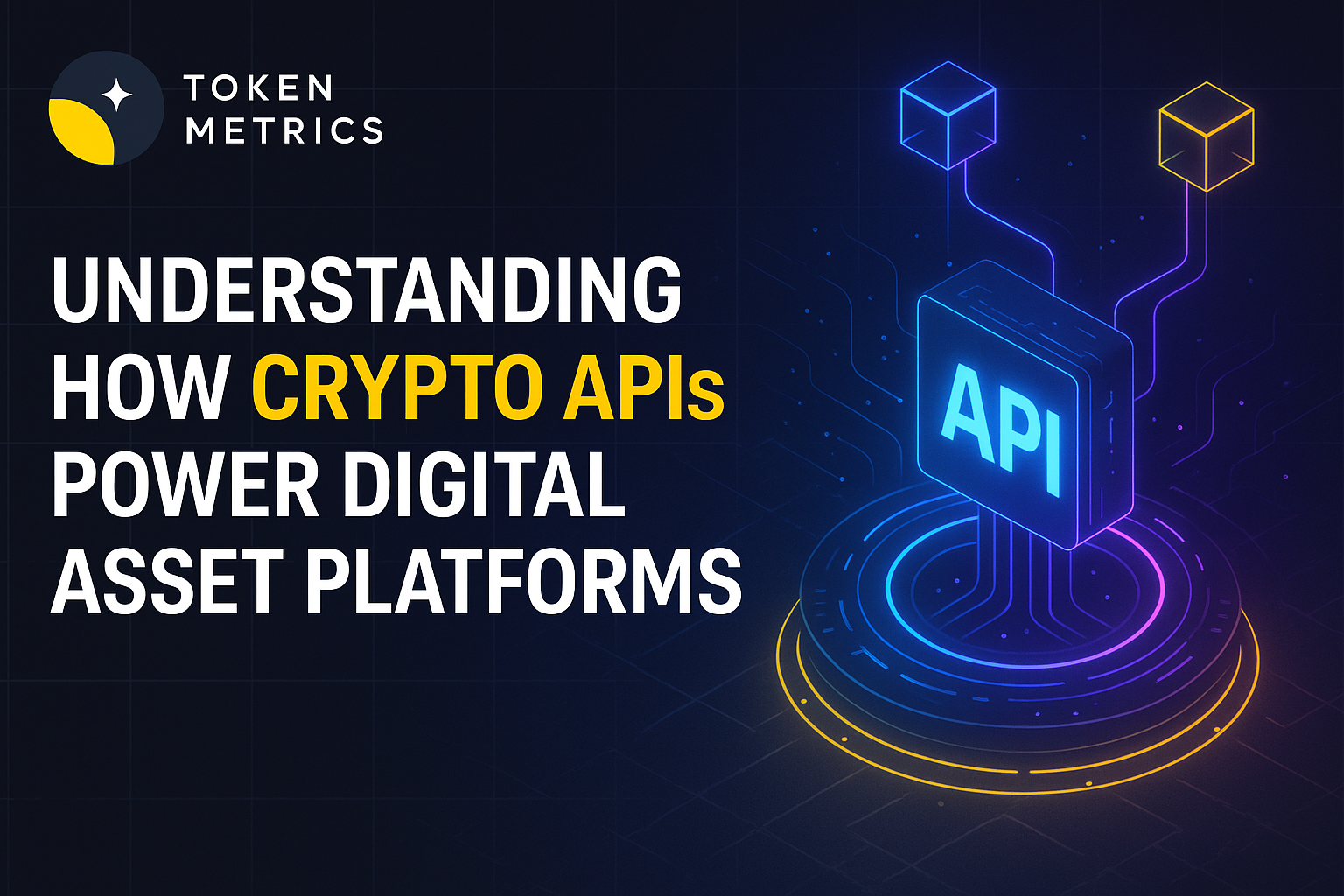Top 10 Crypto Exchanges in the UK in 2025 | Best Crypto Trading Platforms

Cryptocurrency adoption in the UK is booming. From retail investors to hedge funds, crypto is no longer just an experiment—it’s part of a diversified financial portfolio. But in this rapidly evolving space, smart traders know that picking the right tools and platforms is the key to staying ahead.
Before we explore the best crypto trading exchanges in the UK, let’s look at the most important development in the crypto world—AI crypto trading. And there’s one platform leading that revolution: Token Metrics.
Token Metrics – The AI Crypto Trading Platform Changing the Game
While Token Metrics is not a cryptocurrency exchange, it has emerged as the best crypto trading platform in 2025 for UK investors and traders who want to trade smarter—not harder.
Token Metrics empowers users with AI-driven insights, predictive analytics, and cutting-edge data tools to identify the best crypto opportunities—before the rest of the market catches on.
🔍 Why Token Metrics Stands Out:
- AI-Powered Ratings: Each token is scored by proprietary machine learning models across technical, fundamental, and sentiment metrics.
- Bullish/Bearish Signal Alerts: AI alerts when a token shows early signs of momentum or reversal—perfect for timing entries and exits.
- Moonshot Reports: Exclusive weekly research highlighting potential 10x–100x altcoins, vetted by AI and analysts.
- Indices & Portfolios: Build thematic or risk-adjusted portfolios using automated AI indices for DeFi, AI, L2s, and more.
- On-Chain + Social Metrics: Discover low-cap gems by tracking whale wallet activity, social buzz, DEX listings, and more.
💡 Bottom Line: Token Metrics doesn’t execute trades—but it helps you decide what to trade, when to trade, and why. Use it alongside any UK-compliant exchange for maximum edge in your trading strategy.
Understanding Crypto Before You Trade
What Are Cryptocurrencies?
Cryptocurrencies are digital assets built on blockchain technology. They use encryption to secure transactions, verify ownership, and eliminate the need for banks or central authorities. Examples include:
- Bitcoin (BTC) – The original store of value
- Ethereum (ETH) – Smart contracts and dApps
- Solana (SOL), Polygon (MATIC) – High-speed chains
- Meme coins, AI tokens, DeFi tokens – Specialized thematic plays
What Types of Crypto Trading Are There?
1. Spot Trading
Buying/selling crypto directly at current market prices. Simple and most widely used.
2. Margin Trading
Borrowing funds to trade larger amounts. Higher risk, higher reward.
3. Futures & Derivatives
Trading contracts that speculate on price movement without owning the asset.
4. Copy Trading
Follow and replicate the trades of pro traders or algorithms.
5. AI Crypto Trading
Using platforms like Token Metrics to leverage predictive AI models for smarter decisions.
Types of Crypto Trading Platforms
🏦 Centralized Exchanges (CEX)
Platforms like Coinbase, Binance, and Kraken that offer easy fiat access, trading dashboards, and custody.
🔄 Decentralized Exchanges (DEX)
Platforms like Uniswap, where you retain custody of assets and trade peer-to-peer.
🧠 Research-Driven Platforms (like Token Metrics)
Offer AI tools, analytics, and predictive insights—but don’t hold funds or execute trades directly.
Top 10 Crypto Exchanges in the UK in 2025
1. Binance UK
Still the largest exchange by volume, Binance offers UK users an FCA-compliant experience, GBP on-ramps, and access to a wide range of tokens.
✅ Best For: Altcoin traders, low fees
⚡ Highlight: Advanced charts, staking, futures, and Launchpad access
2. Coinbase UK
One of the most beginner-friendly platforms, Coinbase remains popular in the UK for its ease of use and trusted reputation.
✅ Best For: Beginners, long-term investors
⚡ Highlight: Clean mobile app, FCA-regulated, secure cold storage
3. Kraken
Trusted globally, Kraken offers advanced tools for pro traders, plus staking and futures. Fully operational in the UK.
✅ Best For: Intermediate to advanced traders
⚡ Highlight: Strong security and deep liquidity
4. Bitstamp
A European favorite with strong UK adoption, Bitstamp delivers a solid spot trading experience with a clean interface and high compliance standards.
✅ Best For: Conservative investors, fiat pairs
⚡ Highlight: Transparent fee structure and institutional API access
5. Gemini
Founded by the Winklevoss twins, Gemini UK is known for its high security standards and regulatory compliance. It supports GBP deposits and insurance-backed wallets.
✅ Best For: Safety-first traders
⚡ Highlight: Secure vaults, mobile-first UX
6. eToro
eToro mixes crypto with stocks, commodities, and social trading. It’s regulated in the UK and offers a unique copy trading feature.
✅ Best For: Passive investors, social traders
⚡ Highlight: Copy top crypto traders and track performance
7. OKX
With a growing UK presence, OKX is gaining favor for its low fees, wide token selection, and powerful trading suite.
✅ Best For: Futures, DeFi integrations
⚡ Highlight: Dual-mode trading—CEX and DEX options
8. Bitget
Bitget is quickly becoming a go-to platform for futures trading and copy trading. It has expanded its services to be compliant with UK standards.
✅ Best For: Derivatives and social trading
⚡ Highlight: Intuitive futures interface, low latency execution
9. Luno
Luno is a beginner-friendly cryptocurrency exchange operating under FCA registration in the UK. It supports GBP deposits and offers a smooth mobile app experience ideal for new users looking to buy their first Bitcoin or Ethereum.
✅ Best For: First-time crypto investors
⚡ Highlight: Easy interface, auto-buy options, strong regulatory posture in the UK
10. Zumo
A UK-born platform, Zumo focuses on sustainability, regulatory compliance, and mobile-first investing. It allows GBP deposits and offers a simple experience for UK users.
✅ Best For: Beginners and green investors
⚡ Highlight: Carbon-neutral platform and local support
Which Exchange Should You Choose?
- For Beginners: Coinbase, Zumo, Gemini
- For Altcoin Access: Binance, OKX
- For Futures: Bitget, Kraken
- For Social Trading: eToro
- For Eco-conscious Trading: Zumo
- For Institutional Tools: Bitstamp, Kraken
- And for Smart Research: Combine any of the above with Token Metrics
FAQs
Q: Can I use Token Metrics with my exchange?
Absolutely. Token Metrics helps you analyze what to trade. You can execute on any exchange listed above.
Q: Is crypto trading legal in the UK?
Yes, as long as it’s done through FCA-compliant platforms. Tax laws apply.
Q: What fees should I expect?
Centralized exchanges charge trading fees (0.1%–0.5%) and possibly withdrawal or conversion fees.
Q: Is AI crypto trading reliable?
Yes, when paired with due diligence. Token Metrics uses AI to provide data-driven insights, not financial advice.
Conclusion
The UK crypto trading scene in 2025 is more mature, regulated, and accessible than ever before. Choosing the best crypto trading exchanges is only part of the equation. To truly succeed in this fast-moving market, you need tools that help you trade smarter.
That’s where AI crypto trading platforms like Token Metrics come in. Combine a regulated exchange with AI-powered analysis, and you’ll give yourself the edge every trader dreams of.
Start trading smarter today.
👉 Explore Token Metrics – The future of crypto investing, powered by AI
Create Your Free Token Metrics Account

.png)




%201.svg)
%201.svg)


%201.svg)










.svg)




.png)